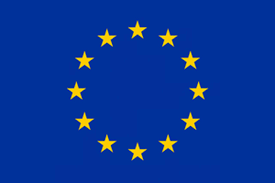
HABITABLE lead
WP10, WP11 and WP12 lead
WP1 and WP9
WP10, WP11 and WP12 lead
WP1 and WP9
The agenda on human mobility in the context of climate change (HMCCC) is currently being shaped by important developments at European and international level, including the upcoming European elections and international climate negotiations and fund on loss and damage. What role can scientific research play in shaping these debates?
In the upcoming workshop “Connecting human mobility and loss and damage: Insights from the HABITABLE project”, adelphi, the Potsdam Institute for Climate Impact Research (PIK) and The Hugo Observatory at the University of Liège would like to warmly invite you to explore this question and others with them. They will share key messages emerging from the empirical, policy, and scenarios work from HABITABLE, the largest ever EU-funded research project on the topic of climate-related migration and displacement.
The HABITABLE project revolves around the concept of habitability and explores social tipping points for migration with the aim of more fully understanding the thresholds for habitability (or the loss of habitability). The emerging findings of the project are supported by empirical field work across seven African and Asian countries, extensive interviews, and collaborative workshops, covering a range of different methodological approaches, with the final aim of better informing policymaking.
Insights and reflections on how people in climate-vulnerable areas experience the impacts of climate change on their lives and livelihoods, the types of losses they are experiencing, and the role of migration among coping strategies and adaptation solutions.
Update on the current status of the Loss and Damage Fund with regard to human mobility, and emerging support needs in terms of data, research, policy and finance. Discussion on current developments and future needs surrounding economic and non-economic losses.
We warmly invite you to continue the conversation over lunch.





HABITABLE aims to significantly advance our understanding of the current interlinkages between climate impacts and migration and displacement patterns, in order to better anticipate their future evolutions.

This project has received funding from the European Union’s Horizon 2020 research and innovation programme under grant agreement No. 869395. The content reflects only the authors’ views, and the European Commission is not responsible for any use that may be made of the information it contains.
Subscribe to our Newsletter